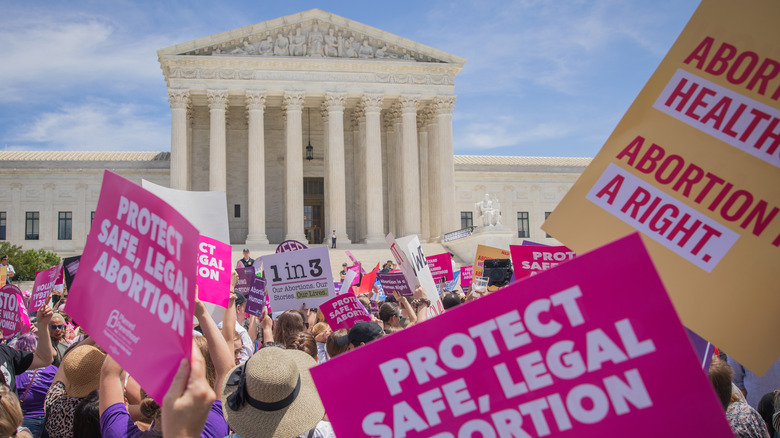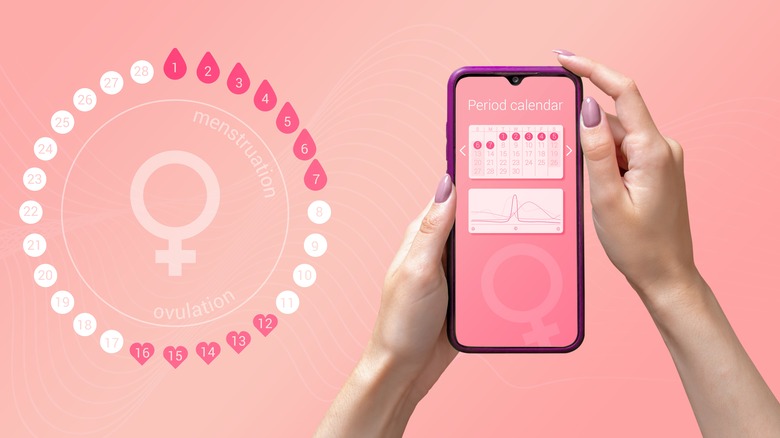Should You Be Deleting Your Period-Tracking App After The Roe V. Wade Overturn?
With the overturn of Roe v. Wade, it's understandable why many women in states where abortion is now criminalized are seeking safety and security, even among menstrual-tracking apps. While these services are meant to help track menstrual cycles, the data collected regarding menstrual cycles has the potential to hold incriminating evidence, especially if this user data is sold (via CNN Business).
"Flo will never share or sell user data, and only collects data when we have a legal basis to do so and when our users have given their informed consent," explains Flo's data protection officer Susanne Schumacher, per CNN Business. Flo is currently the leading period-tracking app, and recently introduced an anonymous mode that allows you to use the app without any personal information.
Additionally, Google released a privacy statement explaining that if any location history shows a visit to a health-related facility (e.g. hospital, abortion clinic, domestic violence shelter) all location data will be automatically deleted soon afterward.
With that being said, deleting your period-tracking app comes down to how private you want your menstrual and reproductive health to be. Even though Flo has an anonymous mode, according to Vox, both Flo and Glow have had previous security failures where they leaked personal and medical information. While some fertility apps may have stronger privacy protection, if you're worried about your information being weaponized, it may be best to not use an app.
You've deleted the period app, now what?
The decision to delete or keep your period-tracking apps can be a tough decision. While refraining from using a fertility app may protect your menstrual and reproductive health, it's a tiny step in overall data protection.
Beyond these apps, the weaponizing of digital data is a growing concern in the U.S. among data privacy advocates because other data fragments such as internet search histories, location tracking, and more can be used to criminalize women (via Bloomberg). Law enforcement and third parties could use this data for surveillance of women who are pregnant and may want abortion care, as well as other targeted groups (per CNN Business).
"Healthcare should be a right and guarantee. However, to the extent that we've seen pregnant people prosecuted and criminalized by way of their emails, texts, and internet searches, there are a few steps people can take to protect themselves," says Cynthia Conti-Cook, a technology fellow at the Ford Foundation and attorney, to Bloomberg.
When it comes to protecting your digital privacy, you may want to protect your data so nothing points back to you. Electronic Frontier Foundation suggests choosing privacy browsers, using a burner phone (if needed), deleting sensitive data, turning off locations before you travel, and checking the privacy settings on your period-tracking app (if you decide to keep it).


